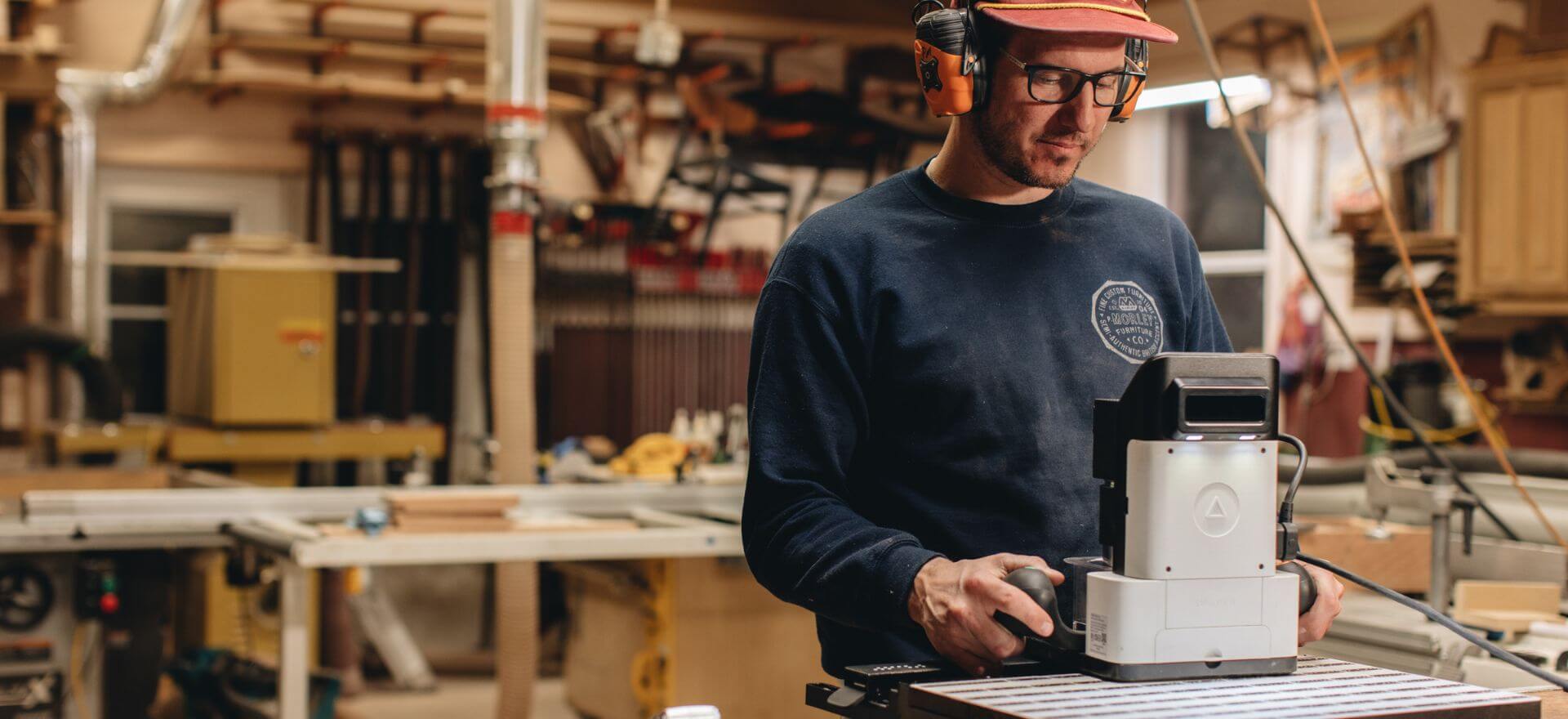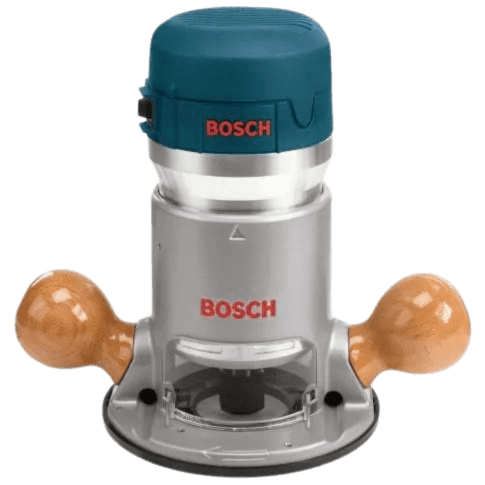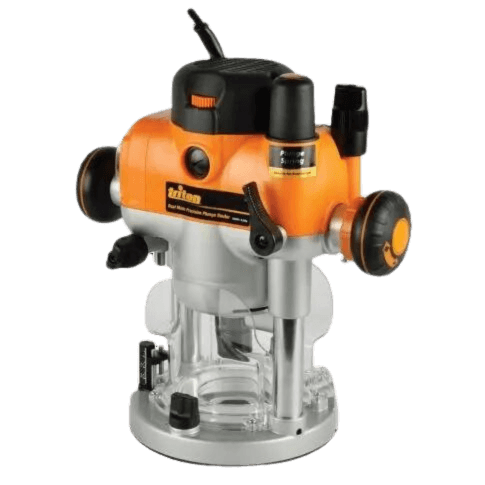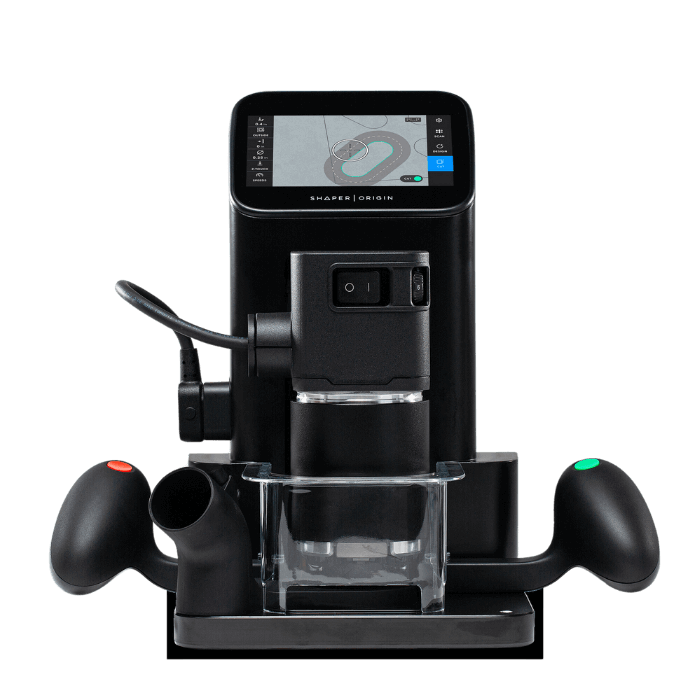


How to Choose the Perfect Router
In woodworking and manufacturing, routers are indispensable tools for shaping, cutting, and finishing materials with precision and efficiency.
Whether you're a hobbyist, a professional woodworker, or involved in industrial manufacturing, understanding the different types of router technology available can significantly impact the quality and scope of your projects.
This article will explore various router types, including fixed base routers, plunge routers, CNC routers, and more, helping you choose the right tool for your needs.
Fixed Base Routers: Precision and Control
Fixed-base routers are among the most popular choices for woodworkers due to their stability and precision. These routers have a fixed position, which means the router's depth of cut is set before operation and remains constant during use.
This feature makes fixed base routers ideal for tasks requiring high accuracy, such as edge shaping and creating dovetail joints. The ease of setting and maintaining a specific depth is a significant advantage, particularly for repetitive cuts on multiple workpieces.
PRODUCT SPOTLIGHT: BOSCH FIXED-BASE ROUTER, 2 HP
- 2 HP / 11 Amp motor 25,000 RPM
- Primary Collet Size: 1/2"
- Base Diameter: 6"
- Macro and microfine bit depth adjustment system with resettable depth indicator
- Large 3-3/4" base opening plus 2 In. subwoofer opening
- Right or left switch location
- One-piece armature shaft - for accuracy and long bit shank capacity
Project Example: Creating Cabinet Doors and Frames
Fixed base routers are ideal for cabinet making, particularly when creating doors and frames that require precise, repeatable cuts.
Their stability and ease of setting a consistent depth make them excellent for rabbeting the edges of doors and routing the profiles for frame joints. The fixed base ensures that the cut depth remains uniform, which is crucial for fitting parts together seamlessly in cabinet construction.
When constructing a custom dining table, a woodworker might use a fixed-base router to ensure the edges of the tabletop are perfectly shaped and smooth. This router is also ideal for cutting dadoes and grooves needed to fit the table's legs and supports precisely. The stability and precision of the fixed-base router help achieve clean, consistent cuts, which are essential for the table's symmetry and strength.
Plunge Routers: Versatility in Cutting
Plunge routers offer a dynamic choice for those who need a versatile tool capable of handling a range of cutting depths and intricate patterns. Unlike fixed base routers, plunge routers allow the operator to adjust the cutting depth while the tool runs by unlocking and lowering the motor housing into the material.
This capability is crucial for making mortises, engraving, and making inlay work easier. Plunge routers are particularly valued for their ability to start a cut in the middle of a workpiece without the need to position the edge along the material.
PRODUCT SPOTLIGHT: TRITON DUAL MODE PRECISION PLUNGE ROUTER
- 3-1/4HP / 15Amp motor 21,000 RPM
- 1/2" and 1/4" collet
- Single button switches from plunge to fixed-based router
- Depth Adjustment Micro winder
- Plunge Range 0 - 2 21/32"
- Electronic speed control
- 3-stage turret with direct reading scales for precise pre-set cut depths
Project Example: Crafting Custom Wooden Inlays
Plunge routers excel in projects requiring the router bit to start and stop mid-material, such as creating intricate inlays in wooden tables or decorative panels.
Their ability to precisely "plunge" into the surface without having to begin at an edge allows woodworkers to achieve detailed, artistic patterns and textures. This capability is particularly valuable for custom furniture makers or restoration specialists who must add unique decorative details to their work.
Plunge routers are invaluable when creating an antique-style wooden chest. They can be used to make mortises for the locks and hinges without the need to tilt or edge the wood to begin the cut. Additionally, plunge routers are excellent for engraving detailed designs or letters on the chest's surface, adding a personalized touch or intricate decorative accents that enhance the chest’s aesthetic value.
CNC Routers: Automation and Precision
CNC (Computer Numerical Control) routers represent the pinnacle of router technology, providing automated control over cutting tools.
CNC routers are programmed via computer software, which directs the router to make precise cuts, carvings, and engravings based on digital designs. This type of router is invaluable in manufacturing environments because it produces consistent, high-quality results much faster than manual routing.
CNC routers can handle a variety of materials, including wood, plastics, and metals, making them essential for intricate design work in cabinetry, sign-making, and aerospace applications.
Project Example: Manufacturing Complex Architectural Elements
CNC routers are indispensable in producing complex and large-scale woodworking projects, such as architectural elements like intricate moldings, carved doors, and detailed furniture.
These routers automate the cutting process based on pre-programmed designs, allowing for precisely replicating complex shapes and patterns.
They are particularly useful in commercial operations where uniformity and precision are required across multiple pieces, such as in producing bespoke furniture or detailed architectural woodwork.
CNC routers are essential for projects involving complex patterns and high precision over large production runs.
For instance, in creating custom decorative panels for luxury interiors, a CNC router can replicate intricate designs with high precision across multiple panels, ensuring uniformity and quality. This is also true for producing parts for custom furniture, where complex cuts would be too time-consuming and prone to error if done manually.
CNC routers automate these processes, maintaining consistency and speeding up production, which is particularly beneficial in commercial settings or large-scale projects.
Other Router Types: Specialty and Adaptability
In addition to the main types, there are several specialized routers designed for specific tasks:
Trim Routers: Compact and lightweight, trim routers are perfect for small-scale jobs such as trimming laminate, small wood projects, and hinge routing. They are easy to maneuver and ideal for fine, detailed work.
Combo Routers: These routers offer the flexibility of switching between fixed and plunge bases, providing the benefits of both types in one tool.
Combo routers are a cost-effective solution for woodworkers who require the capabilities of both types without purchasing two separate tools.
Interchangeable Base Routers: Some routers feature interchangeable bases that allow for even more versatility. These systems enable the user to switch between different base styles, such as tilting bases, which are excellent for angling cuts and joints.
Router Tables: Router tables transform standard routers into stationary tools by mounting them upside-down on a table. This configuration provides a stable and precise platform for routing, making it ideal for tasks requiring detailed work and safety.
Conclusion
Choosing the right router requires understanding the specific needs of your projects and the features of each router type.
Fixed base routers offer unmatched stability and precision, plunge routers provide flexibility with adjustable depth controls, and CNC routers deliver superior automation for complex and large-scale productions. Additionally, specialty routers like trim and combo routers bring further adaptability and convenience to your toolkit.
By selecting the appropriate router, you can enhance your ability to create high-quality products efficiently, whether in a home workshop or a commercial manufacturing setting. As technology advances, the capabilities of these tools continue to expand, offering even greater possibilities for innovation and craftsmanship in the woodworking and manufacturing industries.




